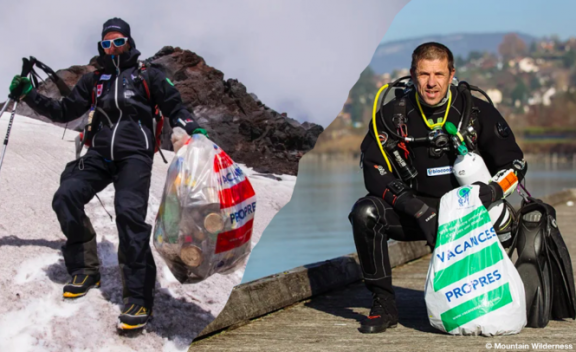For 20 years, Philippe Goitschel and Breffni Bolze have been cleaning up emblematic sites in extreme environments around the world, to raise public awareness of the fragility of natural spaces and the urgent need to recycle waste. Their noble mission knows no borders or limits, from the great depths of the Berger chasm (-1,122 m, France) to the heights of various mountains, such as the base camp of Mount Elbrus (5,642 m, Russia), the summit of Thapa Peak (6,000 m, Nepal) or the base camp of Aconcagua (6,971 m, Argentina).
Last July, in collaboration with Expeditions Unlimited, they tackled a particularly ambitious project: cleaning up Mustagh Ata (7,546 m), China's iconic mountain. The ascent was made on skis in intense conditions. It was quite a feat, removing 800 kilos of rubbish from the normal route, base camp, camp 1 and camp 2.
Before showing you the documentary film Clean Up Extremes: From the Abyss to the Summits, made after the expedition, we asked Breffni a few questions about this extraordinary adventure.
See our climbs above 7,000 meters.
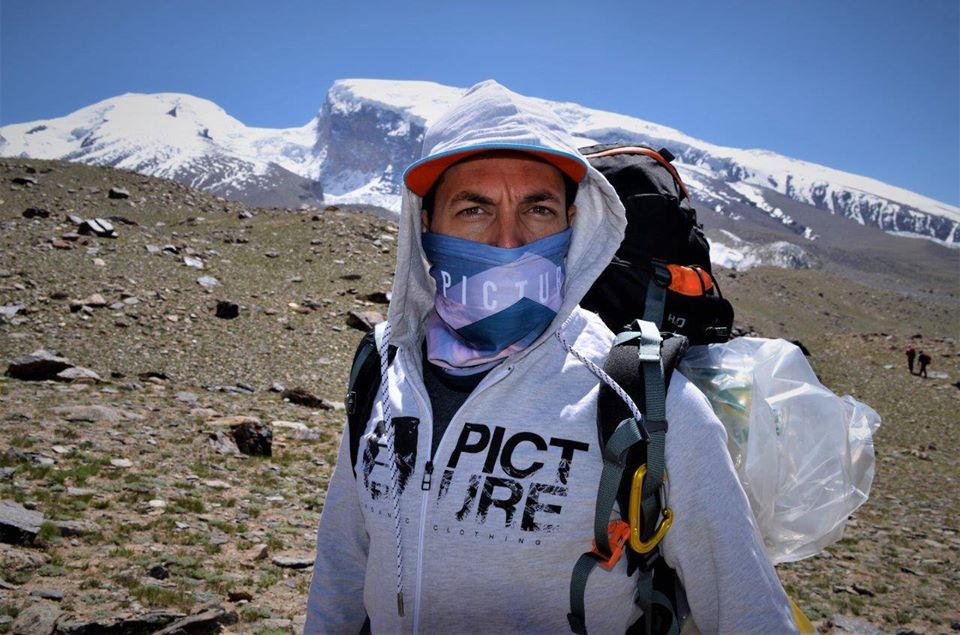
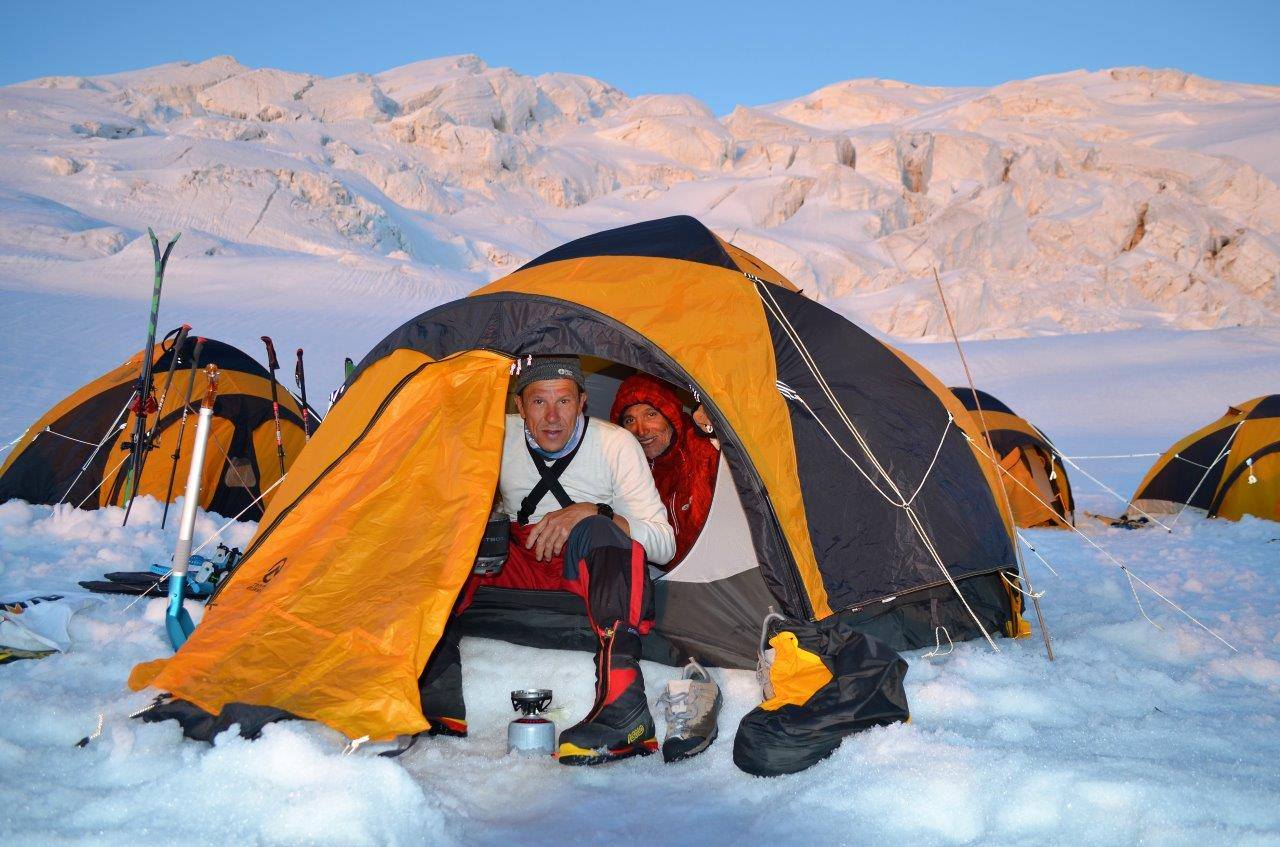
.jpg)
© Breffni Bolze et Philippe Goitschel
Hello Breffni, can you introduce yourself in a few words?
I'm an environmental engineer working for a family-owned industrial group. I've always worked in the waste sector, it's my passion and my job. My first cleaning expedition dates back to 2001, as part of a work placement abroad during my engineering studies. With two friends from school, we set up a project to clean up the Dhaulagiri base camp in Nepal.
I met Philippe a few years later through my cousin. Philippe also combines sport and the environment: he is an alpine ski instructor. A multiple speed skiing record holder, he was the first person to break 250 kilometres per hour on skis. He became aware of the environmental cause at a very early age and is very committed to it. We soon organised our first expedition together, to Aconcagua in 2008.
Cleaning up Mustagh Ata was a colossal project. What was the greatest difficulty?
The last day of the climb was really complicated for me, I thought I wouldn't make it to the end. In fact, I felt very well throughout the expedition and as I was still in good shape on the last day, I did part of the route between camp 2 and the summit. Doing the trace requires almost twice as much effort and with 40 centimetres of fresh snow. It was very physical. What's more, with the dehydration and hypoglycaemia, I exhausted myself without realising it and almost gave up 100 metres from the summit. It was all mental.
Otherwise, the biggest difficulty with the cleaning itself was finding recycling channels. In China, they don't sort waste and dump it all in landfill. We had to take the recyclable waste (metal, plastic, cardboard) by bus to Kashgar, the first big city, and even there it was difficult to find recyclers. In the end, we met some green space maintenance workers who knew where to sell the different types of waste.
The operation lasted almost a month and was intense. Can you tell us about your most memorable memory?
As far as the climb is concerned, for me it's clearly the summit. It took us a year of physical preparation and two years to prepare the project, with the search for sponsors and so on. It was my highest summit, so there was a big emotional charge at the finish.
The other highlight was when the other members of the Expeditions Unlimited group joined us to collect the rubbish. Initially, there were only 4 of us cleaners out of the 17 participants on the expedition, so the others weren't involved in our project. But as time went on, everyone ended up putting on gloves and taking bags to help us.
What eco-responsible practices have been or could be put in place upstream to avoid such expeditions?
In practical terms, during the expedition, this means picking up your own rubbish, not using bottled water, choosing the right place to relieve yourself or even offsetting your carbon footprint by travelling...
More generally, prevention is absolutely essential, because we should never need to collect this waste. We're doing all we can to raise public awareness, for example by giving talks in schools, showing videos and so on. We are also working on this point with Éric (Bonnem, founder of Secret Planet and Expeditions Unlimited, editor's note), by drawing up a charter of good practice for trekking agencies. Once this charter has been finalised, the idea is to put it to the test by applying it as early as next year, when we climb Mount Everest with Expeditions Unlimited.
How can people join you?
Our next expeditions are all open to volunteers who want to join us, and there's always the possibility of adapting to your level. We also work with the Mountain Wilderness association, which organises clean-up operations in the Alps every year, and all the programmes are open to volunteers who don't necessarily have to be members of the association. It's great fun, with a hundred or so people getting together for a weekend or a day to clean up the mountains, and there's a lot to clean up in our own mountains too.
Any final words? A message to pass on?
There's no need to go to the other side of the planet to clean up. Adopting a responsible attitude starts at home, with the sorting of packaging in particular, and it's within everyone's reach.
Climb Muztagh Ata at 7546 meters in China.
.jpg)
© Breffni Bolze et Philippe Goitschel suite au nettoyage du Mustagh Ata
Discover the documentary Extreme Cleaning,
from the Abyss to the Summits
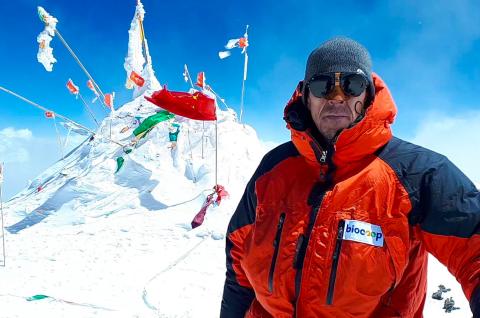
Climb Muztagh Ata at 7546 meters in China
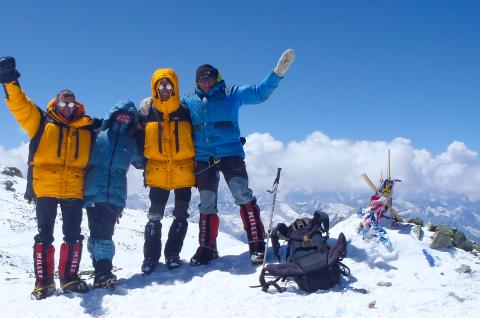
Climb Lenin Peak at 7154 meters in Kyrgyzstan
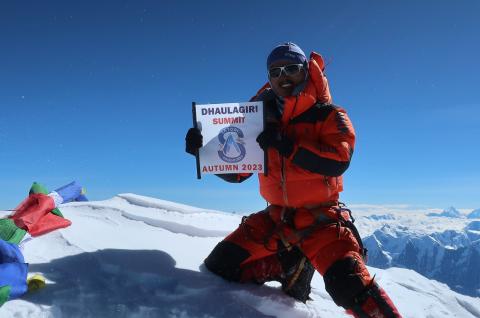
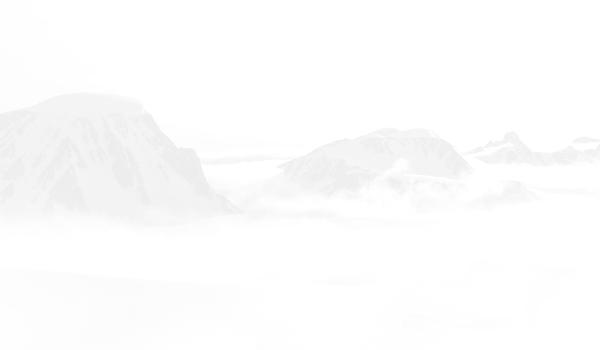
 Expeditions Unlimited blog
Expeditions Unlimited blog